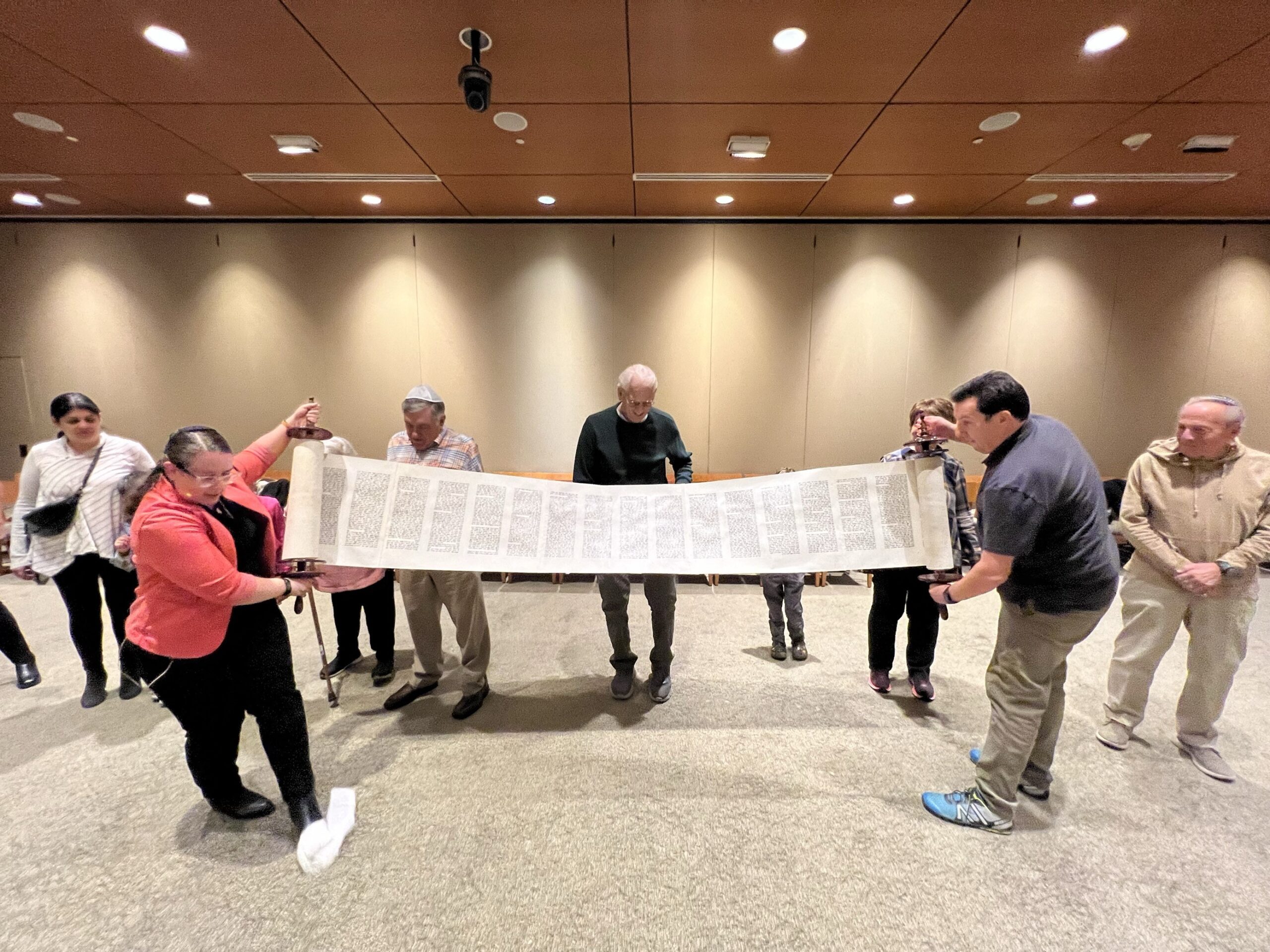Prayer is one of the most personal and profound ways that people connect with the Divine, themselves, and the world around them. It’s an expression of faith, a moment of reflection, or a way to seek guidance and comfort. But what’s so beautiful about prayer is that there’s no one “right” way to do it. Whether whispered in solitude, spoken aloud in a group, or even offered through action, prayer takes on many forms.
This week’s Torah portion, Chayei Sarah, offers one insight into the development of prayer. In Genesis 24:63, just before Isaac meets his wife, Rebecca, “Isaac went out walking in the field toward evening and, looking up, he saw camels approaching.” The word used for walking in the field, lasuach, is a somewhat obscure word that can also be translated as meditating or as conversing.
In the Talmud, in Brachot 26b, the rabbis say that Isaac instituted the afternoon prayer, as it is stated in Genesis, 24:63, “Isaac went out to converse or walk in the field toward evening,” and conversation means nothing other than prayer, as it is stated in Psalms 102:1, “a prayer of the afflicted when they are faint and pour out their complaint (siho) before God.” So according to the rabbis, Isaac was the first to pray as evening approached, at the time of the afternoon prayer. In this tractate of the Talmud, they spin out justifications for the evening and morning prayers as well. They say that Jacob instituted the evening prayer, as it is stated, “and he encountered the place, and he slept there for the sun had set,” in Genesis 28:11. Abraham instituted the morning prayer because “he rose early in the morning to the place where he had stood before God” in Genesis 19:27.
The Talmudic rabbis look at all these words: stand, walk, meditate, converse, encounter.
They say that each of these things mean prayer. What I think is special about this piece of Talmud is that even as they’re explaining the establishment of all the prayers, they are already talking about different ways that people can pray. Each of these different modalities are all acknowledged as important origins of what has eventually developed into our prayer, which for many of us is meeting at the synagogue and singing together and connecting with our liturgy. But there are so many other places and ways that we can encounter prayer. For me, my most prayerful moments usually come in the form of communal singing. I feel most connected to the Divine when I feel connected to other people in raising our voices up for holy work.
I have been very lucky recently to have had two opportunities to participate in concerts that were very prayerful, sacred work. The Shining Through Broken Glass concert was on November 10th, and many of our congregants participated musically, attended, or sponsored the concert. A special mazal tov to Jeremiah member Jennifer Schnepper, who did a huge amount of work on the concert in her capacity as Senior Development Executive at American Friends of Magen David Adom. Then, on November 17th, I, and some of our choir members, sang in the Jewish Rock Radio Chicago Sings Concert, highlighting Jewish musical creativity from around Chicagoland. I am very excited that Temple Jeremiah will be hosting the next Chicago Sings on Sunday, April 6th!
We have also had so many special shabbatot, celebrating birthdays and baby namings, hosting the choir from Holy Blossom Temple together with the Temple Jeremiah Adult Choir. There are so many different opportunities to encounter prayer here at Jeremiah, to participate in many different ways!
Next week, on Friday, November 29th, we are having a Slipper Shabbat – the service will be streamed on YouTube only, with no presence in the building. That will give you an opportunity to explore the holiness of different prayer spaces, whether your own home or wherever you are traveling for Thanksgiving!
Then, the following weekend, from December 6th-8th, Elana Arian will be here! Elana Arian is an accomplished singer-songwriter who can play any stringed instrument and sings with warmth and heart. She was also one of my professors at HUC, and a lot of what I learned about music as a tool for prayerfulness has come from her and her music. I cannot recommend highly enough joining her for Shabbat services on Friday, December 6th or Saturday, December 7th for Tefilah & Torah Study, or for an intimate Havdallah concert on the evening of December 7th. And for those of you that pray with your stomachs, Cheesie’s Food Truck will be providing grilled cheese sandwiches for Shabbat dinner before the service on Friday!
And if that’s not enough, for those of you who find your spirituality in acts of study, I am teaching a class on Monday evenings in December called The Method to the Music, where we will be learning about the role that music plays in worship and community building. Our Inclusion Committee is having their Chanukah Dance Party on Saturday, December 14th, and our Adult Choir is leading a pre-Chanukah concert on Sunday, December 15th to kick off the season with joy, light, and hope.
Wherever you turn, there are opportunities for music, community, togetherness, learning, and joy! All of these could be acts of prayer. However you connect, there is something for you at Jeremiah this December!

